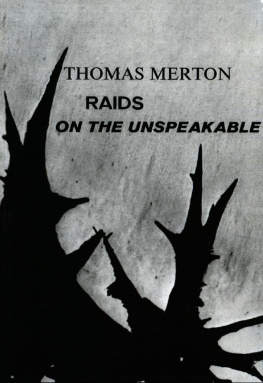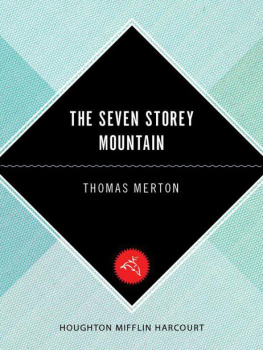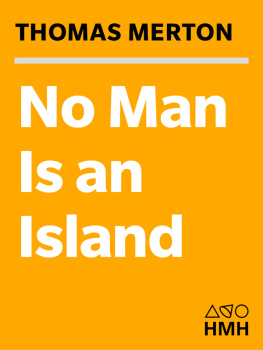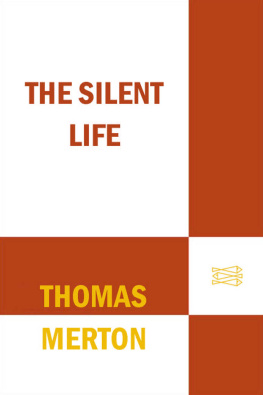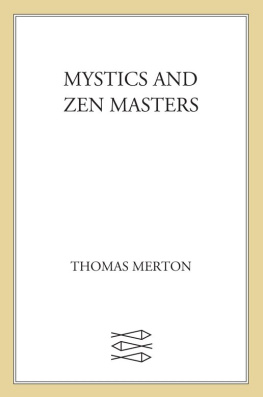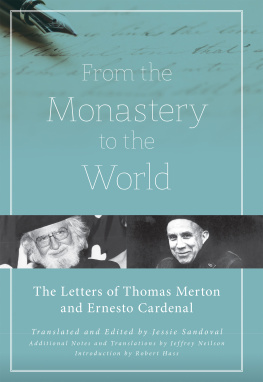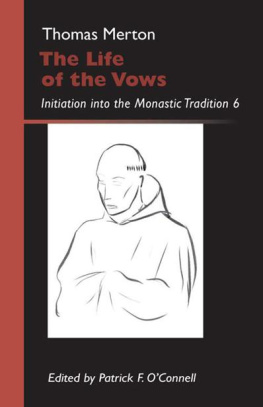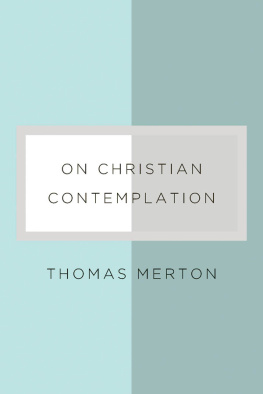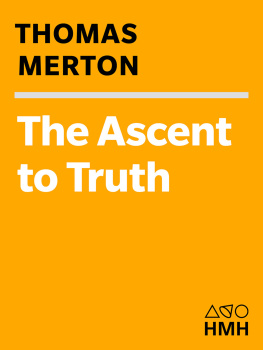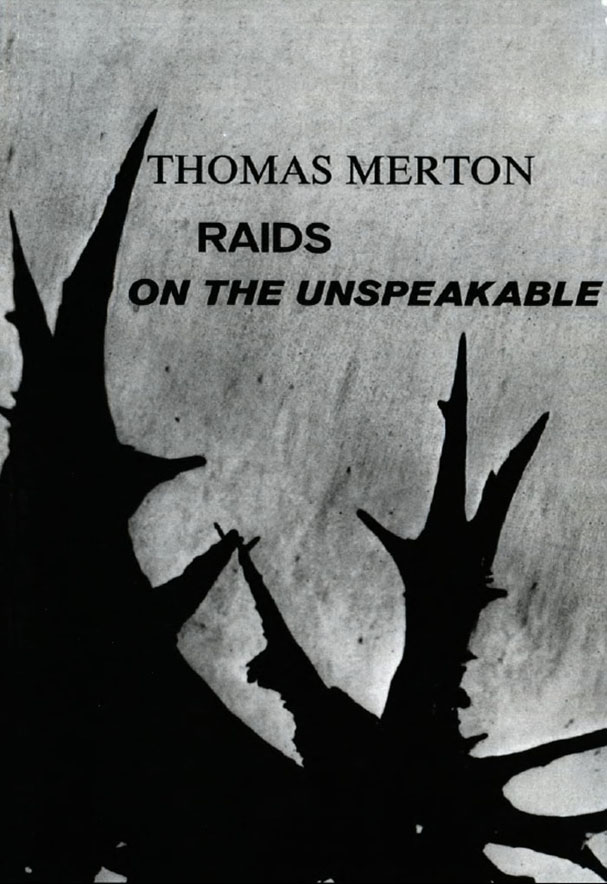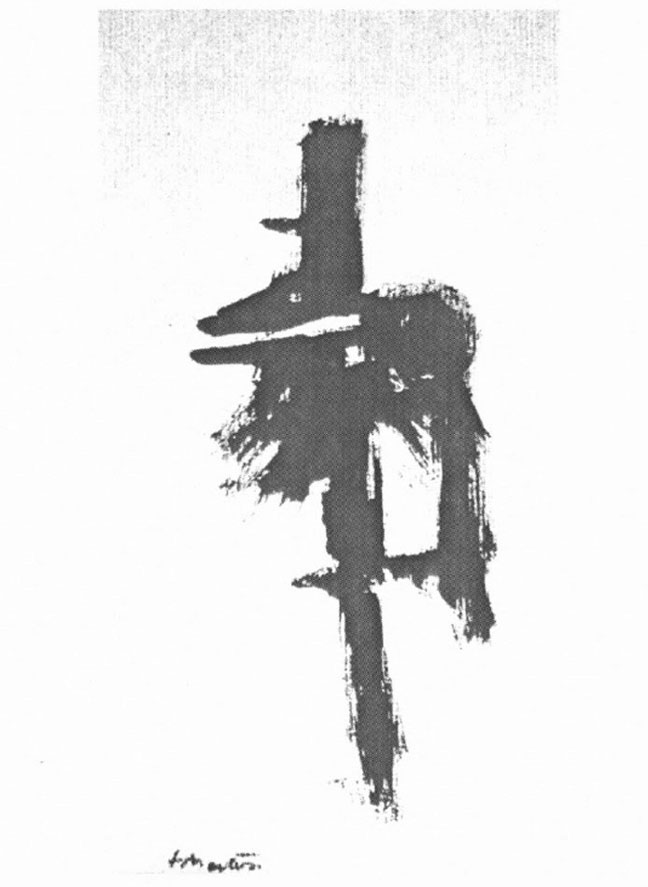Prologue
T HE A UTHORS A DVICE TO H IS B OOK
W ELL , Raids, youre grown up now. It is time for you to go out and meet people as the other books have done. They have usually managed pretty well on their own. They were, for the most part, good mannered. Some of them were even fairly devout. As for you, you may need special advice. I must say you have proved yourself to be a little unusual. Its your poetic temperament. I would hardly call you devout, though I have found you meditating in your own way (not often in Church). But you must remember that most of your brothers went to the seminary, and you will be expected to act like a seminarian yourself. This, I fear, is where you will run into trouble. Take your cosmological myths, for example. You must make clear somehow, particularly to the clergy, that your Atlas has a rather peculiar ontological status. He is not God by any means. He is a titan. There are no titans in the philosophy books, you know. You tell me he is nature. You immediately qualify that by saying he is not physical nature, but rather the natural creativity of the free subject as microcosm, or some such expression. Now this kind of thing is all right for someone like Berdyaev, but you are likely to get me into trouble. Will you be careful, please, not to overemphasize the titans, the creativity, and the microcosmic subject? And dont make Atlas look like a world soul or a cosmic Adam. I have been called so many names lately that I dont want to be called a gnostic anarchist on top of everything else. Please think of your old man, wont you?
Yet I must admit I would be disappointed if no one got your message. Because you do have a message, and I must say I rather like it myself. I feel that though you are definitely a bit wild, your intuitions hit a few targets that the other books may have missed. Mind you, I do not repudiate the other books. I love the whole lot of you. But in some ways, Raids, I think I love you more than the rest.
You are not so much concerned with ethical principles and traditional answers to traditional questions, for many men have decided no longer to ask themselves these questions. Your main interest is not in formal answers or accurate definitions, but in difficult insights at a moment of human crisis. Such insights can hardly be either comforting or well defined: they are obscure and ironic. They cannot be translated into a program for solving all the problems of society, but they may perhaps enable a rare person here and there to come alive and be awake at a moment when wakefulness is desirablea moment of ultimate choice, in which he finds himself challenged in the roots of his own existence. You have considered the critical challenge of the hour, that of dehumanization, and have dealt with it as you could, with poetry and irony rather than tragic declamation or confessional formulas.
I have mentioned Berdyaev. You are certainly not as ambitious as he was, but you have something of the sam eschatological temper. Do not imagine that this will win you every heart. Far from it! Remember that Berdyaev was thrown into prison twice by the tsars and then twice again by the Communists who finally exiled him. There are no more tsars, fortunately. But that does not mean that there is no absolutism in the world. Quite the contrary! There is now a bargain-absolutism for the many which has replaced the exclusive-absolutism of the few. Once you consent to let yourself be levelled in Kierkegaards sense, you become a little tsar in a mass of tsarsyou belong to the absolutism of the world of managers and military brass. In this all our social systems are alike, whether communist or capitalist.
You have derided this tsardom in your Fat Man, and in the Rhinoceros (borrowed from lonesco). You have spoken of it to poets and artists. In these and other symbols you express what you do not accept in the modern world: the hubris of affluence and power and the communion in arrogance which makes tsars out of mice. Make no mistake; this is not a popular message. Such sentiments are acceptable only when they are concentrated in an attack upon the other side: communist or imperialist, as the case may be. If you insist on disapproving of everybody, you will certainly have few friends. But of course, it is not persons you disapprove of: it is ideas. And you do have friends: the young poets, and the new men, for instance, or else simply people as people, not as functionaries or commissars.
The Unspeakable. What is this? Surely, an eschatological image. It is the void that we encounter, you and I, underlying the announced programs, the good intentions, the unexampled and universal aspirations for the best of all possible worlds. It is the void that contradicts everything that is spoken even before the words are said; the void that gets into the language of public and official declarations at the very moment when they are pronounced, and makes them ring dead with the hollowness of the abyss. It is the void out of which Eichmann drew the punctilious exactitude of his obedience, the void which drawls in the zany violence of Flannery OConnors Southerners, or hypnotizes the tempted conscience in Julien Green. It is the emptiness of the end. Not necessarily the end of the world, but a theological point of no return, a climax of absolute finality in refusal, in equivocation, in disorder, in absurdity, which can be broken open again to truth only by miracle, by the coming of God. Yet nowhere do you despair of this miracle. You seem to say that, for you, this is precisely what it means to be a Christian; for Christian hope begins where every other hope stands frozen stiff before the face of the Unspeakable. I am glad you say this, but you will not find too many agreeing with you, even among Christians.
Returning once again to Berdyaevperhaps you would concur with this statement of his (from Dream and Reality): Eschatology is not an invitation to escape into a private heaven: it is a call to transfigure the evil and stricken world. It is a witness to the end of this world of ours with its enslaving objectifications Personally, I am not too sure that all objectifications are enslaving and I know your existentialism is not one of pure subjectivity. As to the world being evil, that too needs to be qualified. Your Atlas is precisely the world as good. The goodness of the world, stricken or not, is incontestable and definitive. If it is stricken, it is also healed in Christ. But nevertheless one of the awful facts of our age is the evidence that it is stricken indeed, stricken to the very core of its being by the presence of the Unspeakable.
Those who are at present so eager to be reconciled with the world at any price must take care not to be reconciled with it under this particular aspect: as the nest of the Unspeakable. This is what too few are willing to see.
Well, we accept that particular statement of Ber-dyaevs only with reservations. How about this one: The practical conclusion derived from this faith [eschatological Christianity] turns into an accusation of the age in which I live and into a command to be human in this most inhuman of ages, to guard the image of man for it is the image of God.
You are not big enough to accuse the whole age effectively, but let us say you are in dissent. You are in no position to issue commands, but you can speak words of hope. Shall this be the substance of your message? Be human in this most inhuman of ages; guard the image of man for it is the image of God. You agree? Good. Then go with my blessing. But I warn you, do not expect to make many friends. As for the Unspeakablehis implacable presence will not be disturbed by a little fellow like you!

